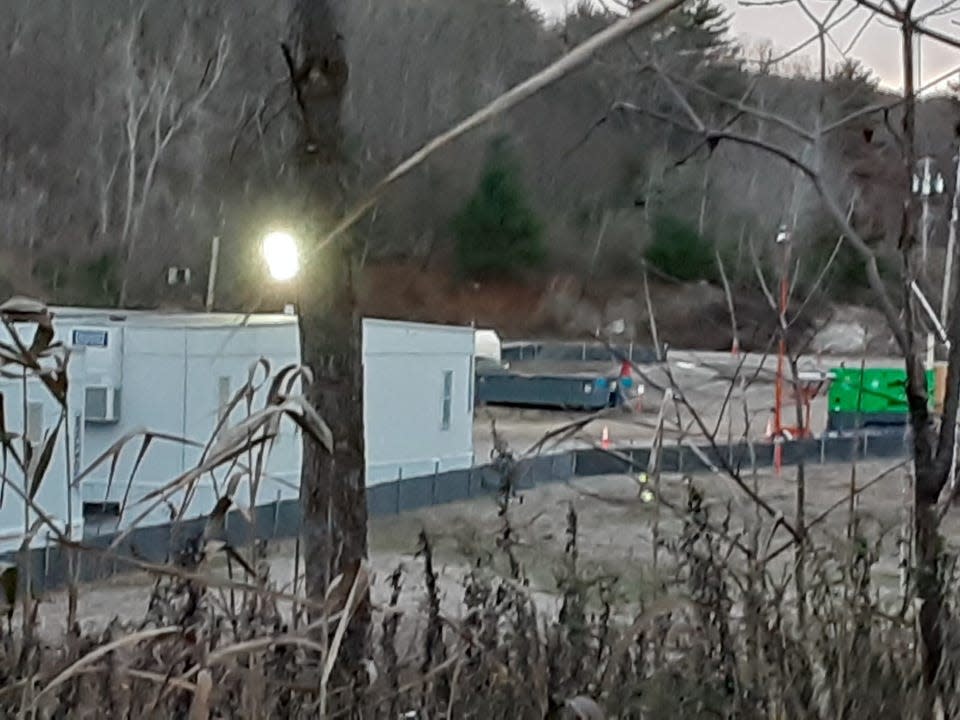Phil Murphy can still stop a reckless North Jersey pipeline expansion. Will he? | Opinion
For the past two years, communities in North Jersey have been organizing to stop a dangerous pipeline expansion that threatens public safety, clean water and clean air. Despite public outcry and pending legal appeals, federal regulators recently gave the company permission to begin construction.
Despite that setback, Gov. Phil Murphy still has the power to stop this dangerous scheme.
In the summer of 2020, Tennessee Gas Pipeline Company LLC, a subsidiary of Texas-based Kinder Morgan, applied for permits for a massive expansion of its existing pipeline system running through North Jersey. TGP seeks to triple the size of its compressor station in Wantage and build a new one in the protected Highlands region of West Milford, on a site just 1,200 feet from the Monksville Reservoir, which provides clean drinking water to millions of New Jersey residents. The project will pipe higher volumes of fracked gas at greater pressure through an aging pipeline system to Westchester County, New York.

In the two years since these permit applications were filed, local residents and environmental activists from around the state have called on Murphy to stop this reckless and unnecessary expansion. Seven municipalities that face the risks of this scheme have passed resolutions opposing the project, and more than 70 health professionals have written to the governor regarding the health and safety risks of compressor stations and the danger they pose to the surrounding communities.
Residents concerned:Protest planned in West Milford as natural gas pipeline upgrades commence
Earlier this year, an accident at TGP’s Wantage compressor station blew an uncontrolled, toxic plume of gas into the air for a full 70 minutes, prompting numerous 911 calls and sending residents scrambling indoors. This event was frightening but not exceptional; according to the Pipeline and Hazardous Materials Safety Administration, between 2006 and 2017, TGP had 111 significant incidents with their pipelines, resulting in $89,815,380 in property damage and 19 federal enforcement actions.
Much of TGP’s pipeline is 65 years old, 15 years past its useful life. Yet TGP wants to triple the amount of fracked gas forced through this pipeline, putting the health and safety of residents at risk. Leaks, explosions, and accidents along the pipeline are to be expected. One such event occurred in July along this very pipeline in Pennsylvania, when a burst section of pipe caused an explosion and fire which burned through five acres before it could be contained.
Murphy regularly issues lofty rhetoric about the urgent need to address the climate crisis. But a serious climate agenda would mean stopping new fossil fuel projects; instead, the Murphy administration’s Department of Environmental Protection has approved permit after permit. Now just a single permit remains, and TGP has been given the go ahead to begin construction. All the while, the governor has never publicly acknowledged that this project even exists.
Nonetheless, Murphy can still live up to his environmental commitments and stop this project. In his first term, he championed his Energy Master Plan to address what he called our state’s “century-old addiction to fossil fuels,'' setting a goal of 100% clean energy by 2040. More recently, the governor signed an Executive Order calling for a 50% reduction in emissions by 2030, and a requirement for builders to consider climate change impacts if they want their projects approved. New Jersey is already not on track to meet these goals, and things could get worse if Murphy continues to approve dirty energy expansion schemes. There are seven major new fossil fuels projects proposed in our state, which could create a substantial increase in climate pollution.
With his promises to ramp up offshore wind, along with introducing the country’s first climate curriculum for public schools and signing the strongest environmental justice law in the country, Murphy can leave a strong legacy as a climate champion. But he can’t have it both ways. If Murphy allows TGP to proceed with this pipeline expansion, he will be sacrificing the health and safety of his constituents and our shared responsibility to rapidly confront the climate crisis.
Murphy can still stop this project. But we are running out of time.
Brian D. Scanlan is a former mayor and councilman from Wyckoff.
Sam DiFalco is an organizer with the advocacy group Food & Water Watch.
This article originally appeared on NorthJersey.com: TGP pipeline NJ expansion can still be stopped by Gov Phil Murphy

